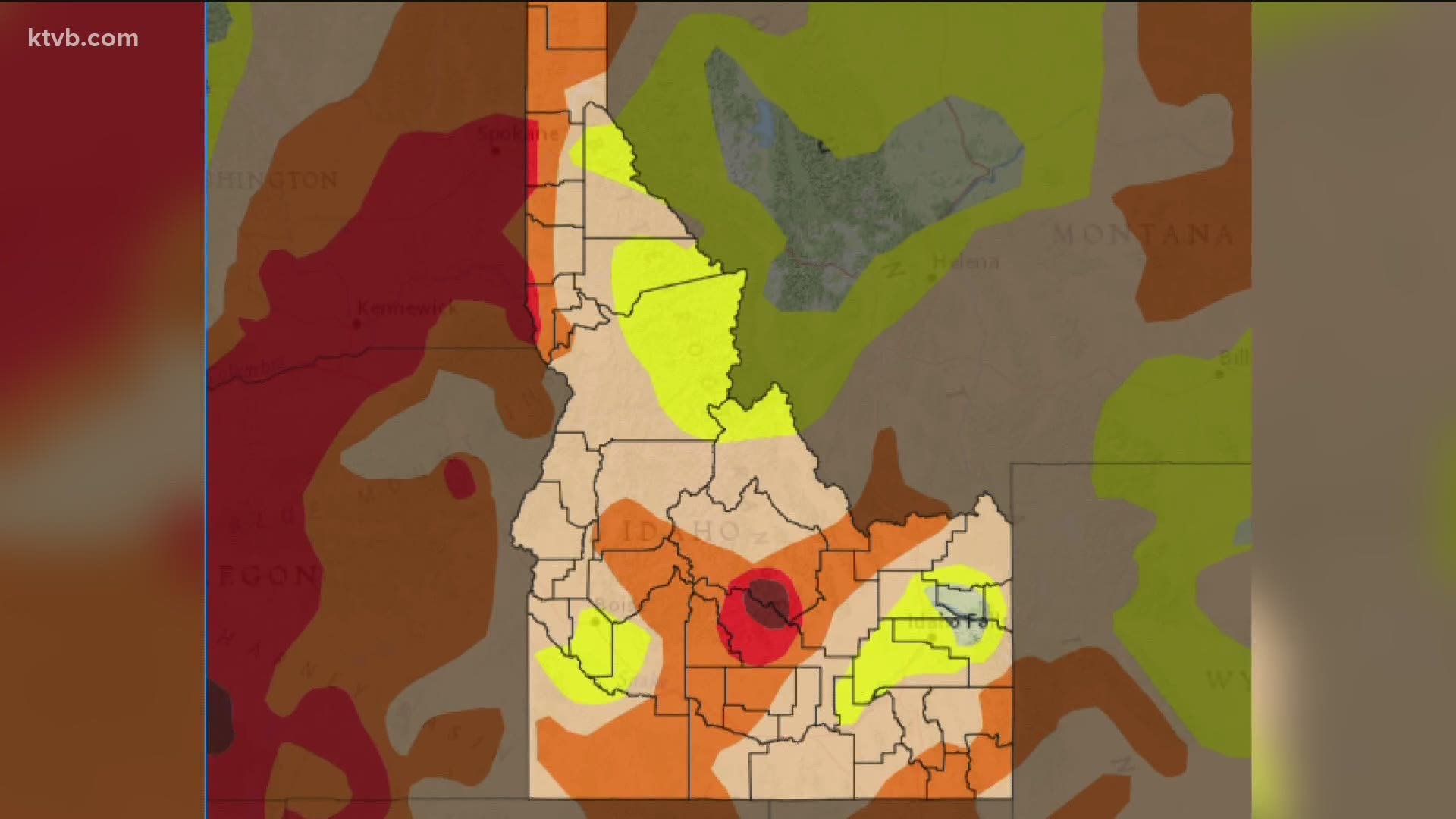BOISE, Idaho — Drought conditions in Idaho continue to worsen as the weather warms. While conditions are worsening in other parts of Idaho, the city of Boise is hopeful the community will get ahead before it's too late.
2021 has been the 36th driest year on record for Ada County, according to the National Oceanic and Atmospheric Administration (NOAA). Water precipitation was down 1.4 inches from last year, totaling a mere 8.25 inches in Boise.
"We are taking this very seriously and we are starting to do some long-term planning to address these concerns," said John Roldan, the strategic water manager for the city of Boise.
Along with most of Idaho, Boise is feeling the effects of the dryness. Most of Ada County is considered abnormally dry while the rest of the state is in a moderate drought.
"We are in the desert, droughts are normal," Roldan said. "They happen. It's a cyclical process but with climate change, we are seeing this happen more frequently and it's projected to be in drought conditions for longer periods of time."
The National Weather Service issued the following statement in May 2021 regarding Boise's drought conditions:
Below normal spring precipitation and the early loss of snowpack have led to expanding drought conditions across Idaho. The latest seasonal drought outlook (May 20, 2021-August 31, 2021) indicates that drought will persist in areas already being impacted by drought, and drought development is likely across the rest of Idaho.
Roldan said people can expect to see local ordinances regarding water conservation if Boise experiences another drought year.
"We are reviewing our ordinances right now and looking at ways to have smarter development if you are in an area that doesn't have surface water supply from an irrigation district," he explained. "We also have irrigation district and canal companies that provide residence with surface irrigation water and we encourage that to be used whenever possible and preserve our groundwater for droughts like this."
70% of Boise's water comes from underground and 30% comes from the Boise River, according to Roldan.
In Meridian, the single source is groundwater. While the city is producing water at a sustainable rate, Meridian's Public Information Officer Stephany Galbreaith said increased demand, drought conditions or changes in the water supply could create possible shortages.
"Preparing water conservation programs now will help ensure Meridian has an adequate water supply as we continue to grow," she added.
Related: Watch wildfires in the West:
See all of our latest coverage in our YouTube playlist:

